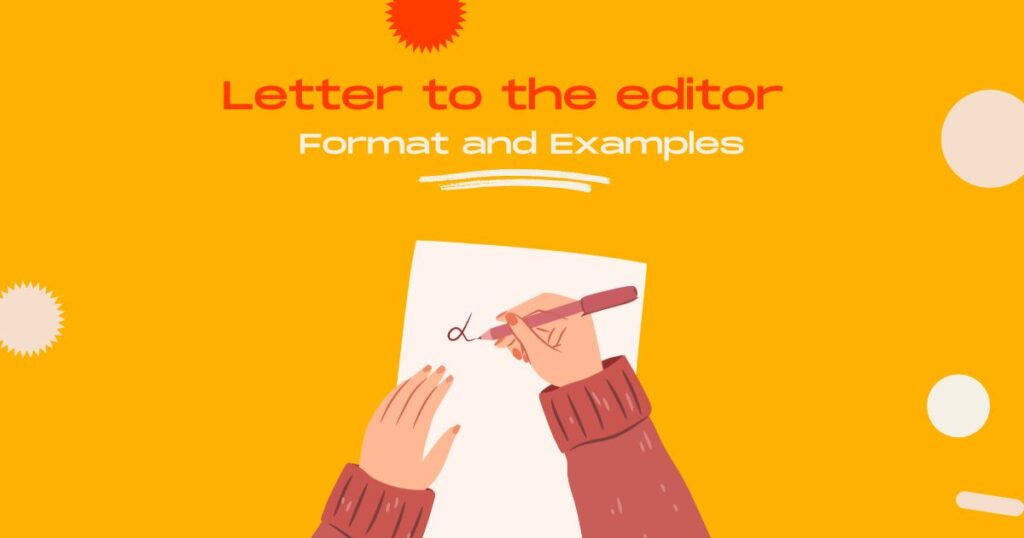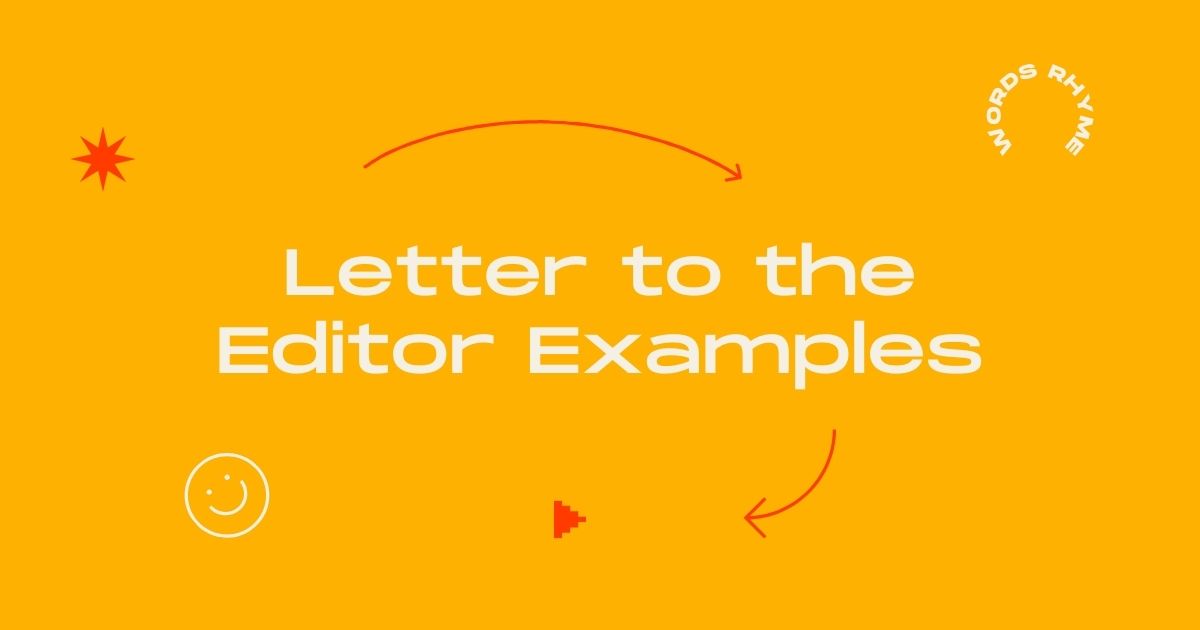If you are working for a publication, magazine or newspaper, you will encounter countless letter to the editor examples, but ever wondered what they are used for, and how to write one on your own?
Scroll down to see the best samples of a letter to the editor.
Table of Contents
What is a Letter to the Editor?
Ever pick up a newspaper and just feel compelled to shout back at what you read? Maybe you loved an article and wanted to sing its praises, or spotted a flaw that needed fixing. That burning desire to join the discussion – that’s where reader letters come in.
Writing to the editor is like jumping into a lively living room debate. The newspaper pages are your forum to air your views and have a casual chat about the issues. You don’t need a huge response either, just a short courteous comment will do.
It’s not merely griping behind closed doors. By sending a letter, you insert yourself politely into the public dialogue. You slap on your reporter hat alongside the pros and offer your two cents worth. The editor just might decide your angle is worth sharing with others too.

How Do You Start Writing a Letter to the Editor?
Starting a letter to the editor is like being at the starting line of a race – you need to be quick, impactful, and straight to the point. First, clearly state which article you are responding to by title and date. Then, dive right into your main point. Whether it’s an agreement, a disagreement, or additional information, make it clear from the get-go. Remember, editors are busy folks, and if your letter doesn’t grab their attention in the first few lines, it might just end up in the ‘not-to-be-published’ pile.
What Are Good Topics for a Letter to the Editor?
So, what makes a topic worthy of a letter to the editor? Here’s a quick list:
- Current Events: Responding to recent news articles or events.
- Community Issues: Local concerns, events, or decisions made in your community.
- Appreciation or Critique: Complimenting or critiquing an article or stance taken by the publication.
- Correcting Facts: Providing correct information if an article contains errors.
- Adding Perspective: Offering a new viewpoint or additional information on a topic.
Remember, the best topics are those that are relevant, timely, and add value to the ongoing discourse.
Letter to the Editor Examples
Letter to the Editor of a Newspaper Sample
Example #1
Dear Editor,
I am writing in response to the article “The City’s New Policy on Recycling” published on January 12th. While I applaud the city’s efforts in promoting recycling, I believe the article missed out on addressing the challenges faced by apartment dwellers in complying with these new regulations. Limited space for multiple bins and unclear guidelines make participation difficult. I urge the city to consider these constraints and provide practical solutions.
Thank you.
Best regards,
David
Example #2
Dear Editor,
I am writing to express my concern about the article “The Rising Cost of Public Transportation,” published on February 20th. While the piece effectively highlights the financial challenges faced by our public transit system, it fails to discuss the impact of these rising costs on low-income commuters. As a daily user of public transport, I have observed many struggling to afford the new fares. This issue needs urgent attention to ensure equitable access to transportation for all residents.
Thank you.
Yours Truly,
Valery
Write a Letter to the Editor of a Local Newspaper Examples
Example #1
Dear Editor,
The recent piece “Revitalizing Downtown” (published on March 5th) brought to light the important issue of urban renewal. As a long-time resident, I would like to offer my perspective on why community involvement in this project is crucial for its success. Engaging local residents in the planning process not only fosters a sense of ownership but also ensures that the redevelopment meets the unique needs of our community.
Thank you.
Yours Sincerely,
Raj
Example #2
Dear Editor,
In response to the article “New Park Development in Our City,” dated April 5th, I would like to raise a point that was notably absent. The development plan, while ambitious, doesn’t seem to take into account the existing flora and fauna of the area. As a local naturalist and birdwatcher, I have documented various species that rely on this habitat. It’s crucial that the city’s plan includes measures to protect these local ecosystems.
Thank you.
Yours Truly,
Thomas
Letter to the Editor of a Scientific Journal Example
Example #1
Dear Editor,
Regarding the recent article “Advancements in Biodegradable Plastics” in your esteemed journal (Volume 12, Issue 3), I would like to contribute some additional insights from my research in polymer science, particularly in the area of environmental impact. Our studies suggest that while these materials degrade faster than traditional plastics, their byproducts might still pose ecological risks. This aspect warrants further investigation and discussion.
Thank you.
Sincerely,
Rishik
Example #2
Dear Editor,
I am writing in reference to the article “Innovations in Alzheimer’s Research” in the latest edition of your journal (Volume 15, Issue 4). As a researcher in neurodegenerative diseases, I appreciate the comprehensive review of recent advancements. However, the article seems to overlook the significance of patient-centered approaches in Alzheimer’s research, which are crucial for understanding the real-world impact of these innovations on patients’ lives.
Thank you.
Regards,
Jane
Frequently Asked Questions about Letter to the Editor
How long should a letter to the editor be?
A: Typically, keep it brief. Around 200-300 words are ideal, though it can vary depending on the publication’s guidelines.
Do all letters get published?
Not necessarily. Publications receive many letters and only a select few make it to print, often based on relevance, uniqueness of perspective, and adherence to word limits.
Should I include my contact information?
Yes, it’s important to provide your contact information so the editor can verify your identity. This information is usually not printed.
Can I submit the same letter to multiple publications?
While you can, it’s generally better to tailor your letter to each publication, as they may have different audiences and editorial standards.
How do I know if my letter has been accepted?
Some publications send a confirmation, but many do not. Keep an eye on the publication after you’ve submitted your letter; if it doesn’t appear within a couple of weeks, it likely wasn’t accepted.
Takeaways
Writing a letter to the editor is a powerful way to engage in public discourse. Whether you’re responding to a news article, a scientific study, or a local issue, your letter can add valuable insights, correct misinformation, or even sway public opinion. So next time something you read sparks a thought, consider penning a letter. Your voice matters!


